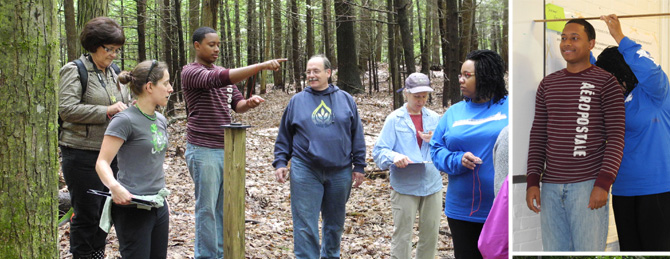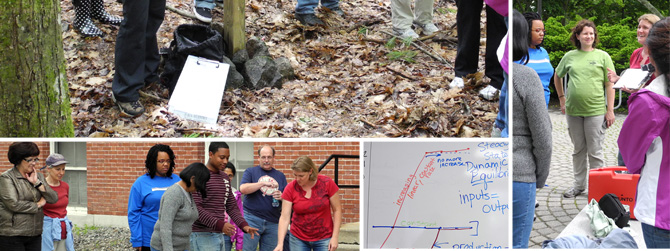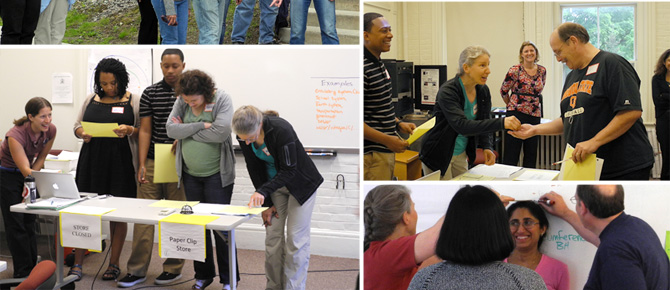| ESTEEM (NICE) | NASA | NIA | CERSER | UNH | ECSU |

| 2012 UNH GLOBE Training | ||
On Sunday, May 20, 2012, representatives of Elizabeth City State University, Patrina Bly, and Justin Deloatch, attended workshops held in conjunction with the NASA Innovations in Climate Education (NICE) program at the University of New Hampshire in Durham, New Hampshire. The NICE program is a joint effort between Elizabeth City State University and the University of New Hampshire geared to empower the faculty of education programs at Minority Serving Institutions to better engage their pre-service teachers in teaching and learning about global climate change through the use of NASA Earth observation sets. This project is designed to impact teaching first on college campuses within science education classes. Second, as pre-service teachers transition into in-service teachers, the impact will extend to elementary and secondary schools. The Global Learning and Observations to Benefit the Environment (GLOBE) consisted of many hands-on and tactical events that investigated the carbon cycle in terrestrial ecosystems. This workshop was gathered the GLOBE Train-the-Trainer Workshop, and was geared towards having participants learn the necessary skills needed to train faculty and staff back at their home institutions. GLOBE training was a three-day event lasting May 22 – 24. Presiders included Dr. Mary Martin, Sarah Silverburg, and Dr. Lara Gengarelly. GLOBE Train-the-Trainer workshop was a multifaceted event. The foundation of the GLOBE workshop was set up around three main questions. These questions were termed essential questions and were comprised of the following:
In total, eight participants from various backgrounds took part in the GLOBE Train-the-Trainer workshop. Tasked with multiple days’ events, participants used numerous methods to go about answering the posed essential questions. At the completion of the workshop, participants self-evaluated their overall comfort in presenting the information. |
||
   |
||
